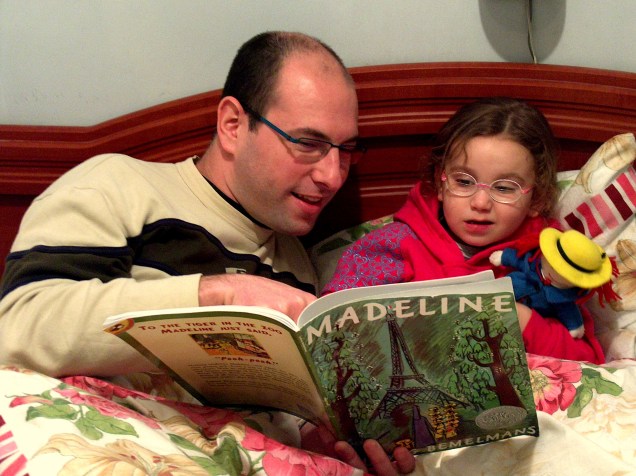
–
The UK Supreme Court slaps down the SNP-led Scottish Government’s assault on privacy and individual liberty manifested in the evil Named Person scheme, citing the creeping threat of totalitarianism
Good news from the UK Supreme Court today, which has made an important decision in favour of civil liberties and privacy by ruling the SNP government’s insidious “Named Person” child-monitoring scheme unlawful, giving Holyrood no recourse to further appeal.
Specifically the Supreme Court struck down provisions which allowed the sharing of sensitive data about Scottish children between agencies, which the court held to be in breach of the right to privacy and a family life under Article 8 of the European Convention on Human Rights.
The court further held that several of the provisions for data sharing in the Children and Young People (Scotland) Act 2014 were beyond the legislative competence of the Scottish Government – in other words that Nicola Sturgeon’s nationalist government has been getting far too big for its boots, and should perhaps focus on trying to deliver better governance for Scotland instead of greedily seeking to acquire ever more power over its own citizens.
What is most encouraging about this ruling – besides Nicola Sturgeon being put firmly back in her box, of course – is the strong, uncompromising language used by the justices in their decision.
From the judgment:
Individual differences are the product of the interplay between the individual person and his upbringing and environment. Different upbringings produce different people. The first thing that a totalitarian regime tries to do is to get at the children, to distance them from the subversive, varied influences of their families, and indoctrinate them in their rulers’ view of the world. Within limits, families must be left to bring up their children in their own way.
The justices then go on to quote the late US supreme court justice James Clark McReynolds, who held in Pierce v Society of Sisters:
“The fundamental theory of liberty upon which all governments in this Union repose excludes any general power of the state to standardize its children by forcing them to accept instruction from public teachers only. The child is not the mere creature of the state; those who nurture him and direct his destiny have the right, coupled with the high duty, to recognize and prepare him for additional obligations.”
The child is not the mere creature of the state – a universal truth, but one seemingly forgotten by the Scottish National Party in their paranoid desire to centralise and monitor everything that takes place north of the border.
This is a remarkable tirade against totalitarianism and in favour of individual liberty, and can only be seen as a stunning repudiation of the SNP’s entire suffocating, infantilising attitude towards their own citizens. To warn about the slippery slope toward totalitarianism in such an clear way only serves to underscore just how illiberal – and vastly disconnected from the welfare of the child – the Named Person scheme really is.
What is even more remarkable is that such a start warning against totalitarian instincts came not from a mainstream elected politician, but from unelected judges. In its short history, the UK Supreme Court’s judgments have not exactly set the world on fire or shifted numerous copies of approving books in the way that one might pore over the dissents of Ruth Bader Ginsburg or the late Antonin Scalia. That mild-mannered UK supreme court justices are mentioning totalitarianism and quoting McReynolds at all is proof that we are in trouble.
In their reporting, the British press has been making much of the fact that the ruling later goes on to call the Children and Young People (Scotland) Act 2014 “unquestionably benign”. In their article, the BBC makes no mention of these pointed references to totalitarianism in the judgment, immediately revealing the corporation’s bias and reluctance to report properly on stories which are critical of the authoritarian leftist Scottish government.
But as it was with the shock Brexit vote in the EU referendum, once again the media’s barely concealed support for infantilising, authoritarian Big Government policies has been overridden. In this case, the supreme court has spoken (though how much better it would have been had the Supreme Court been able to strike down the Named Person Act with reference to a British Bill of Rights or constitution rather than the expansionist ECHR).
As this blog noted when the Named Person scheme was last being debated prior to the 2016 Holyrood elections:
Whether any given Scottish person wants their top layer of government to reside in Holyrood or Westminster, surely anybody should agree that the bottom layer of government should not intrude deep into the family unit in the way that the Named Person Scheme does.
[..] This is the SNP at work in government. A hectoring, overbearing movement which seeks to centralise everything they can touch, from the state monitoring of children to the police and fire services – with deadly consequences, in the latter cases.
Today, a blow has been struck against the insidious ratchet effect underway in Britain, leading inexorably to a larger and more interfering state. We should be grateful to the Supreme Court for their decision, and to The Christian Institute and other appellants for fighting the case.
But it should not fall to an unelected judiciary to make the bold and uncompromising case for individual liberty. Ruth Davidson did a magnificent job opposing the Named Person scheme on behalf of the Scottish Tories, but we need more politicians across the board who are willing to stand up for liberty and who possess the imagination to conceive of a world where government is not the answer to every single problem.
The Supreme Court did us proud today. It is about time for more of our elected politicians to do the same.

–
Top Image: CapX
–
Agree with this article? Violently disagree? Scroll down to leave a comment.
Follow Semi-Partisan Politics on Twitter, Facebook and Medium.







